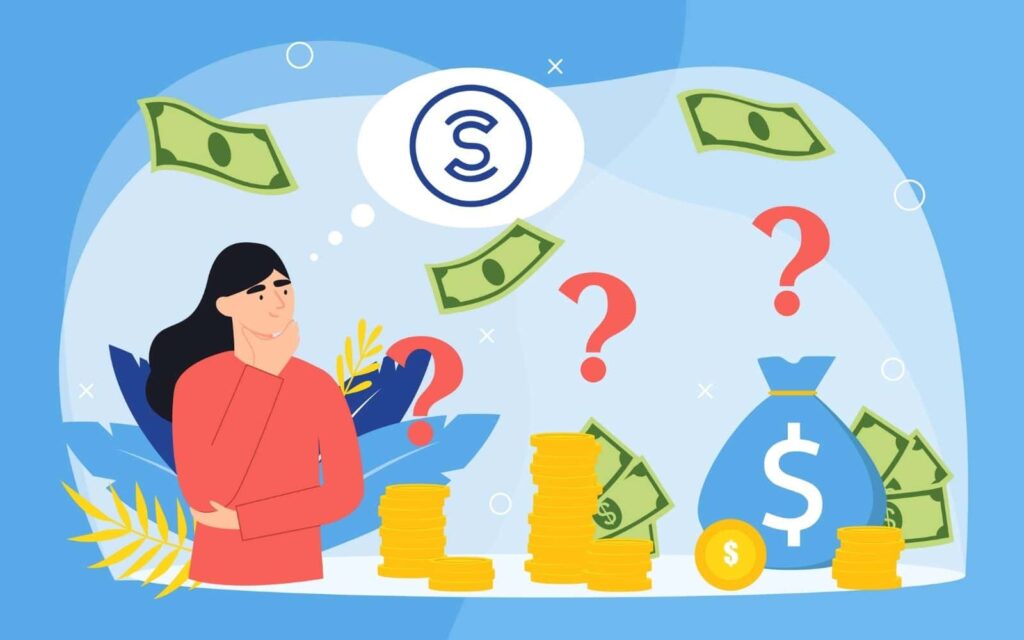Disclosure: This post may contain affiliate links. If you click on a link I may make a small commission at no extra cost to you. You can read the full disclosure here.
Last Updated on October 22, 2022 by Chris Panteli
Editing vs Proofreading
You’ve probably used the words ‘proofreading’ and ‘editing’ interchangeably, but they are totally different processes.
Someone looking for a professional copy editor will expect an entirely different service than someone looking for a proofreader. So, what’s the difference between editing vs proofreading?
If you’re thinking about starting a proofreading or editing business, this post will show you the key differences and help you decide which one is best for you.
Do you know how much the average proofreader makes in the US? Click here to find out – the answer might surprise you.
Learn How To Start Your Own Proofreading Business
Alicia made $1,100 the first month after she graduated from one of Caitlin’s proofreading courses – even while she was still working full-time at her retail banking job!

- Editing vs Proofreading
- What is Editing?
- What is Proofreading?
- What Comes First: Proofreading or Editing?
- Editing Strategies
- Proofreading Strategies
- Editing vs Proofreading: Which Should You Choose?
- A Side-by-Side Comparison of Proofreading vs Editing
- Start a Proofreading or Editing Business
- Editing vs Proofreading
What is Editing?

Editing content is making revisions and suggestions to improve the writing. It involves improving the content’s accuracy, structure, flow, wording, and overall readability.
Professional editing can take on different forms, but generally, it’s a detailed document review to prepare the content for a specific audience.
What is Proofreading?
Proofreading is checking a piece of writing for spelling, grammar, punctuation, and formatting errors.
Whereas editing looks at the writing as a whole, proofreading focuses on the surface to remove final typos, errors, and mistakes.
Proofreading is important because it ensures a piece of writing is as good as it can be. Without it, your writing will be littered with errors, and no one will think you’re an expert in your field.
What Comes First: Proofreading or Editing?
Editing always comes before proofreading in the writing process. You don’t need to focus on punctuation or grammatical errors when editing a document. Instead, you look at the writing as a whole to improve the structure and readability.
Proofreading is an important part of the process after editing because it removes all those small errors that editing overlooks.
Editing Strategies

The process of editing is entirely different than proofreading. If you’re planning on editing a document, here are some strategies to do it effectively.
Think about the target audience
One of the main purposes of editing is to prepare the writing for the intended audience. Keep the target audience in mind when you’re reading through the content.
For example, if it’s an article written by a tech expert but it’s aimed at the public, you’ll probably need to edit out technical jargon and make sure the writing is plain enough for the average person to understand.
On the other hand, if you’re editing a children’s book, you’ll need to consider the length of sentences, wording, phrasing, and style to ensure it’s readable and appealing to younger audiences.
Since understanding the target audience is an important component of editing services, most copy editors specialize in a specific niche and understand one audience very well.
Start with the structure
When you start editing, it’s best to do a full read-through to see if there are any major holes in the content or flaws in the structure. This is known as developmental editing or substantive editing.
No matter what type of writing you’re editing, there should be an introduction, a middle, and an end. By doing a full read-through, you can determine if the writing is in the right order and if you’re left with any questions.
Next, look at sentences
Once you have the overall structure, you can begin focusing on sentence structure. This is known as copy editing or line editing.
Take the content one section at a time and consider whether the sentences make sense. Are they clear? Precise? Is there enough variation?
You might need to reorder sentences or rewrite sections for clarification. Reading the content out loud often helps spot which sentences need some work.
Finally, focus on words
Most people have comfort words or phrases they unconsciously rely on when writing. When you’re copyediting, look out for repetitive words and phrases and edit them out.
You’ll also need to check that the wording is accurate and appropriate. For example, colloquialisms can’t be used in an academic essay, and blog posts shouldn’t have complex words that readers may not be familiar with.
Proofreading Strategies

Proofreading is a much more straightforward process than English editing. In this review stage, you’ll need to focus on surface errors to ensure the writing has no flaws. Check for:
- Spelling mistakes and inconsistencies (e.g., switching from US to British English).
- Grammatical details (e.g., overusing adverbs, such as ‘really’ or ‘very’).
- Switching between past and present tenses.
- Punctuation and spelling mistakes.
- Typos and autocorrect mistakes.
- Correct use of apostrophes (e.g., the soldiers’ barracks vs. the soldier’s barracks).
- Commonly confused words (e.g., there, their, and there).
To be a great proofreader, you must have a good grasp of the language and grammatical rules to know what to look for.
Editing vs Proofreading: Which Should You Choose?
Whether you need editing or proofreading depends on the kind of writing you have. For example, if you have written a blog post for your website, you might be happy with the content but want an extra pair of eyes to check for grammatical or spelling errors. In this case, you probably don’t need an editor.
However, if you’ve written your first novel, you’ll want an editor to check the story structure, flow, and readability. In this case, you’ll want an editor and then a proofreader afterward.
Which service should you offer?
There are a few things to consider if you’re trying to figure out whether you should start a proofreading or editing business.
- Do you have any degrees or certifications? People tend to look for people with experience in a certain niche when they’re hiring a copy editor.
- Do you have a good understanding of grammar rules? To be a great proofreader, you need a firm grasp of the English language.
- Do you want to work within a specific field? Copy editors tend to be more niche, whereas proofreaders can work across industries.
- Do you have experience in publishing? Manuscript editors need to have some kind of experience in publishing or editing to win over clients. Proofreading is easier to start without any formal experience.
A Side-by-Side Comparison of Proofreading vs Editing

The terms ‘proofreading’ and ‘editing’ are often used interchangeably, but they are completely different.
If you’re planning on starting a proofreading or editing business, you need to be clear about which services you’ll offer. Here is a quick comparison to make it easier to figure out.
| Editing | Proofreading |
| Comes first in the review process | Comes last in the review process |
| Reviews the structure and flow of writing | Reviews the grammar, spelling, and surface errors |
| Removes obvious spelling and grammatical errors | Does not change the flow or structure |
| Helps with formatting | Helps with formatting |
| Can be offered as a standalone service | Can be offered as a standalone service |
| Needs proofreading after | May not need editing beforehand |
| Best for in-depth or longer pieces of writing | Useful for any type of writing |
| Specialized to a specific niche (e.g., non-fiction, fiction, academic editing, etc.) | More generalized and can be done across industries |
| Higher cost than proofreading | Lower cost than editing |
It’s up to you to decide whether you’ll offer proofreading services, editing, or both. Generally, it’s much easier to start proofreading since this isn’t such an in-depth service.
However, if you have any expertise, you may want to offer niche editing services for that demographic.
Start a Proofreading or Editing Business
Both proofreading and editing can be great side hustles if you want to make extra money. All writers need talented editors to help prepare their writing for publication, so there are countless niches you could get started with.
If you love the written language and want to start making money with proofreading and editing services, head to our next post on how to start a proofreading and editing business.
We’ll talk you through how to get started, find your first clients, and how much you should be charging for your services.







